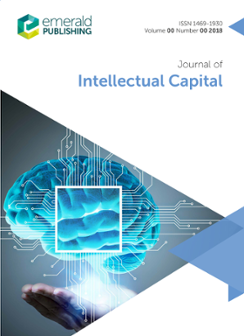Supply chain capital and firm performance: the role of complementary capabilities
IF 6.8
2区 管理学
Q1 BUSINESS
引用次数: 3
Abstract
PurposeDrawing on social capital theory, we extend the concept of supply chain capital to examine whether structural and relational capital can strengthen the complementary capabilities of suppliers and enhance their performance.Design/methodology/approachThe empirical study was conducted on 161 precision mold equipment suppliers. To evaluate the mediated moderation model of supply chain capital, we applied multiple linear regression to test our hypotheses.FindingsWe found that both structural and relational capital positively affect the complementary capabilities of suppliers and that these capabilities mediate the relationship between supply chain capital and supplier performance. Furthermore, structural capital positively and significantly moderates the mediating effect on the relationship between complementary capabilities and supplier performance.Research limitations/implicationsThis study provides suggestions for suppliers that are equipped with sufficient structural and relational capital to effectively enhance their complementary capabilities. By considering the interaction between structural capital and complementary capabilities, suppliers can effectively improve their performance.Originality/valueThis novel research develops a theoretical model to examine the antecedents and consequences of supplier complementary capabilities. We contribute to a new line of research on supply chain capital, which aims to explore how it affects the complementary capabilities of suppliers by examining a practical supply chain activity setting.供应链资本与企业绩效:互补能力的作用
目的借鉴社会资本理论,拓展供应链资本的概念,考察结构资本和关系资本是否能增强供应商的互补能力,提高供应商的绩效。设计/方法/方法对161家精密模具设备供应商进行了实证研究。为了评估供应链资本的中介调节模型,我们采用多元线性回归来检验我们的假设。研究发现,结构资本和关系资本对供应商的互补能力都有正向影响,这些能力在供应链资本和供应商绩效之间起中介作用。此外,结构性资本正向显著调节互补能力与供应商绩效之间的中介效应。研究局限/启示本研究为具备足够结构资本和关系资本的供应商提供建议,以有效提升其互补能力。通过考虑结构资本与互补能力之间的相互作用,供应商可以有效地提高其绩效。原创性/价值本研究建立了一个理论模型来考察供应商互补能力的前因和后果。我们为供应链资本的新研究做出了贡献,该研究旨在通过检查实际的供应链活动设置来探索它如何影响供应商的互补能力。
本文章由计算机程序翻译,如有差异,请以英文原文为准。
求助全文
约1分钟内获得全文
求助全文
来源期刊

Journal of Intellectual Capital
Multiple-
CiteScore
14.50
自引率
13.30%
发文量
27
期刊介绍:
The Journal of Intellectual Capital is a peer-reviewed international publication dedicated to the exchange of the latest research and best practice information on all aspects of creating, identifying, managing and measuring intellectual capital in organisations. The journal publishes original research and case studies by academic, business and public sector contributors on intellectual capital strategies, approaches, frameworks, tools, techniques and technologies in order to increase the understanding of intellectual capital within the context of the modern knowledge economy. The focus of this journal is on the identification of innovative intellectual capital strategies and the application of theoretical concepts to real-world situations.
 求助内容:
求助内容: 应助结果提醒方式:
应助结果提醒方式:


